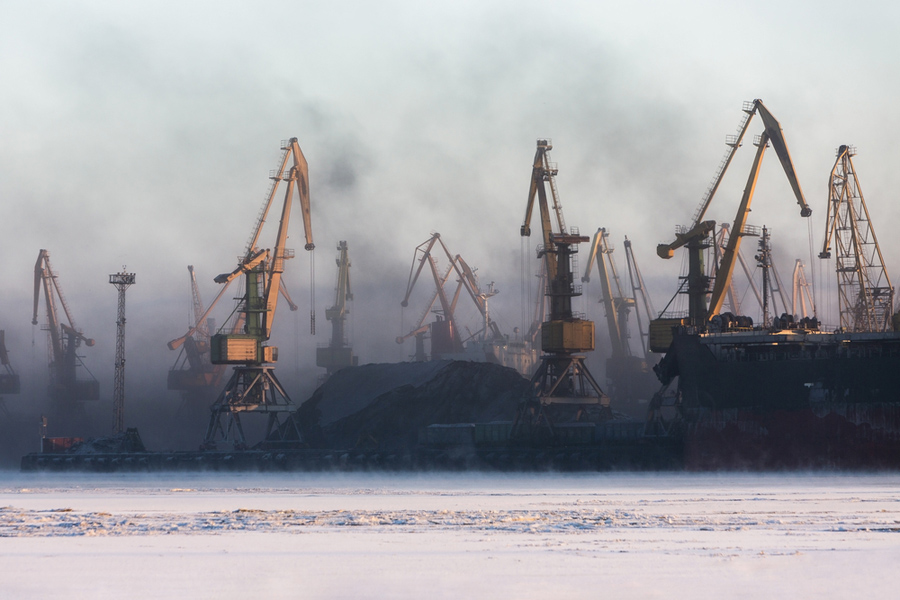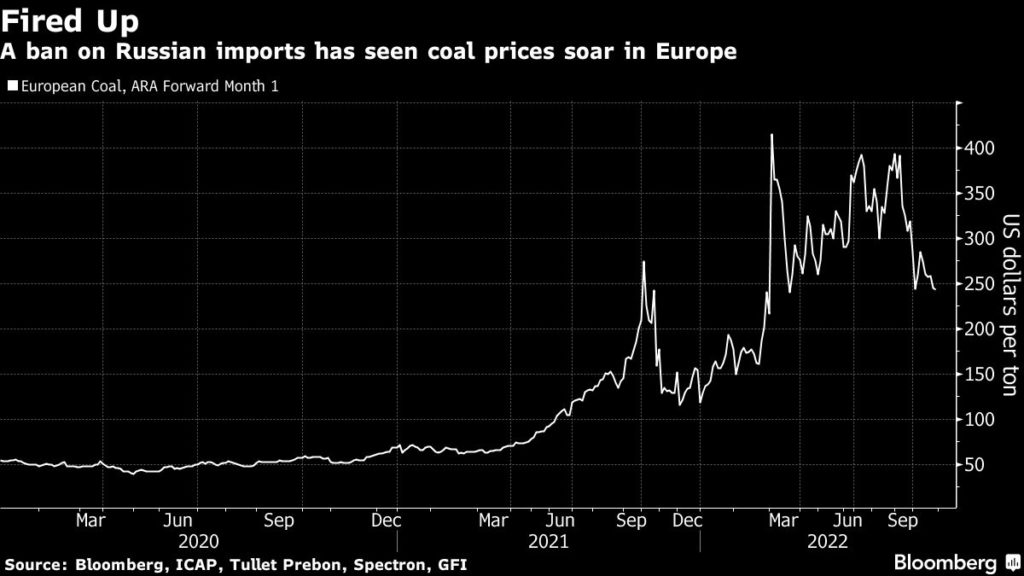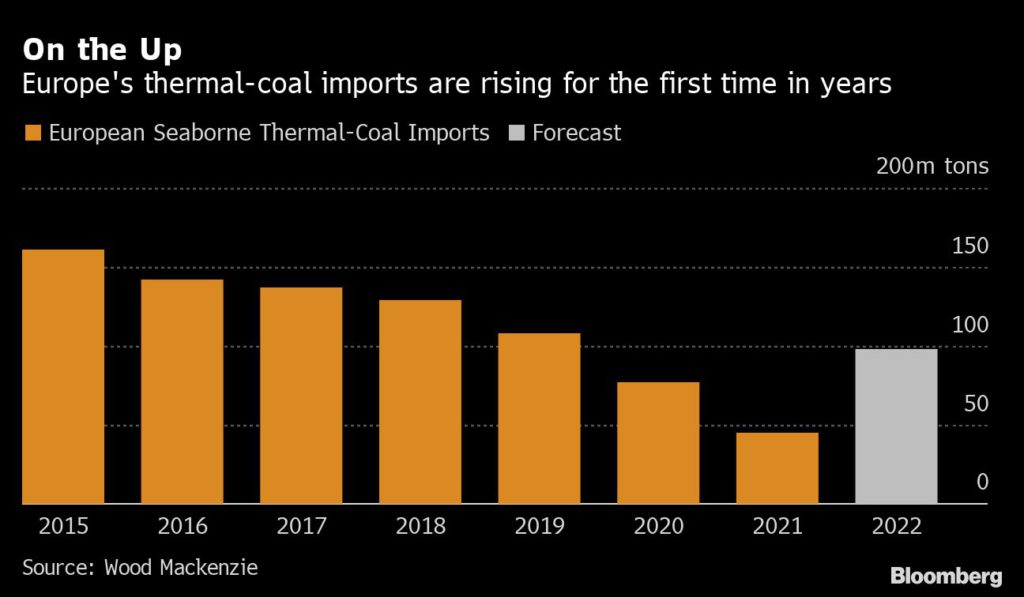Coal traders turn to private finance as high demand lifts prices

Coal traders are turning to private finance to keep shipments moving after a European ban on Russian imports sent prices up fivefold.
Russia made up almost half of the European Union’s hard-coal imports in 2020, but purchases all but ceased in August as the bloc imposed sanctions over the war in Ukraine. That’s upended trade flows as European buyers scan the globe for alternative supplies to plug an energy shortfall, causing prices to spike.
The rally has been a problem for traders, which were already under pressure as banks pulled back from financing thermal-coal transactions in recent years. With each cargo now worth much more, funding shipments has become trickier, pushing traders toward private funds — which typically charge higher interest.
“Most of the banks and insurance companies won’t touch it, so traders are coming to the alternative market,” said Peter Ryan, managing director at private finance fund Goba Capital. Goba has more than $500 million in its commodities lending pipeline — the majority in coal — according to Ryan.

With Europe suffering its worst energy crisis in decades, a number of countries have backpedaled on plans to phase out coal, using the fuel to fire power plants as natural-gas costs surge amid a supply crunch.
Heightened demand for the polluting commodity — as well as the high yields traders are ready to pay to access credit — have underpinned the increasing willingness of funds to bankroll trades.
Commodity trade finance is usually done on a secured basis, meaning that the lending bank effectively owns the cargo during shipment — making it a typically low-margin business. But while banks would charge low single-digit figures for financing a cargo of metals or oil, funds have been offering interest rates in the mid-teens for coal trades, according to Goba’s Ryan.
Such financing opportunities attract funds with a focus on commodities, but also those that have traditionally concentrated on generic trade finance.
“We’re not hardcore commodities specialists,” Ryan said. “It’s just this new reality, especially in coal, where high prices do lend themselves to our high-yield offering.”

The trading margins on coal are so good that the market can cope with sky-high lending rates, according to Chris Scott, chief financial officer of Novum Energy Trading Corp., which specializes in oil products but also trades US and Colombian coal.
“The funds are there for a reason -– the margins are there to support the additional costs of capital,” Scott said, adding that the high expenses tend to get passed on, with energy providers eventually charging customers more for their heating.
“The reality is, at the end of the day it’s the man on the street who is paying for it. It’s always getting passed down the chain.”
(By Archie Hunter)
{{ commodity.name }}
{{ post.title }}
{{ post.date }}




Comments